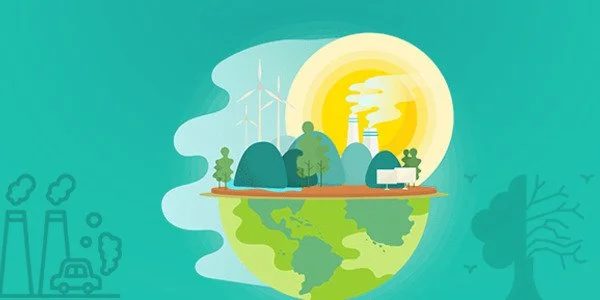Raising awareness, and thus understanding, of the health effects of climate change will facilitate both behavioral change and societal support for the actions required to reduce greenhouse gas emissions. It can also assist in persuading health-care professionals to support mitigation and adaptation strategies that will both improve health and reduce vulnerability.
Climate change awareness and its consequences are insufficient to motivate people to take action. New research on how people’s worldviews influence their perceptions and actions may help policymakers and activists reframe the climate change mitigation debate.
According to a new study published in the journal Energy and Environment, despite a high level of awareness of climate change and its consequences, people are often hesitant to take action to change their behavior.
Nations agreed in 2015 to keep climate change “well below 2°C” to avoid the worst effects. However, current national targets must be significantly strengthened in order to achieve this climate change mitigation goal. This necessitates public support for policy changes, which includes not only accepting an energy transition but also being willing to use and pay for renewable energy sources, as well as actively participating in an energy transition. Individual behavior changes in energy, food, and transportation consumption are also required.
According to cultural theory, there are four major worldviews and discourses: hierarchical, egalitarian, individualistic, or anarchical. For example, supporters of hierarchical views would prefer that the government assume responsibility for the energy transition.
Nadejda Komendantova
“The major aim of this paper was to understand how awareness about the need for climate change mitigation could be turned into action,” says IIASA researcher Nadejda Komendantova, who led the study.
Nadejda Komendantova and Sonata Neumueller used social science methodology, including surveys and interviews, to understand how people’s worldviews influence their actions in three regions of Austria, ranging from rural to semi-rural to suburban.
The researchers expected to find broad support for climate change mitigation efforts in a country with a high level of awareness of the impacts of climate change both nationally and globally, and they did. However, despite a high, almost universal, level of awareness about the need for climate change mitigation, there was significant disagreement about who should be responsible for implementing climate change mitigation efforts and how they should be implemented.

“People have different perspectives on the world, and these perspectives influence their perceptions of the risks, benefits, and costs of various policy interventions, as well as how people act,” Komendantova says. Komendantova and Neumueller translated their interview and survey data into four different worldviews, using a social science rubric known as cultural theory, to categorize the types of opinions into an analyzable framework.
“According to cultural theory, there are four major worldviews and discourses: hierarchical, egalitarian, individualistic, or anarchical,” Komendantova explains. “For example, supporters of hierarchical views would prefer that the government assume responsibility for the energy transition.” The egalitarian would argue that everyone should be responsible for the energy transition, based on the fair and equal distribution of risks and responsibilities.
Individual discourse representatives would argue that it is a matter of personal responsibility and that things like technology, innovation, and compensation are important.”
Because of these differences in worldviews, people may agree on the fundamental truth that climate change is a problem and that something should be done, but they may disagree on how and what policies should be implemented, as well as their willingness to change their own behavior.
This understanding could aid policymakers in developing compromise solutions that reflect these various worldviews. Komendantova notes that the study was small and limited to one country, but similar methods could provide insight across a larger European or international landscape.
“There are a variety of views on energy policy, and there are also conflicts among these views,” Komendantova says. “In order to move from awareness to action on climate change mitigation, we must first understand the existing diversity of worldviews.”
Climate change is one of the most serious issues confronting our planet. Even if some people are unaware of how serious the situation is, there are many things you can do to keep them informed. We’ll go over some simple ways to bring up climate change in conversation before moving on to actions you can take in your community to spread the word!















